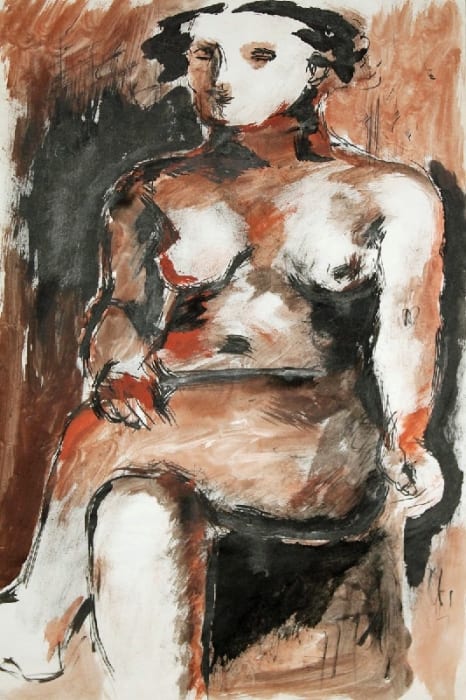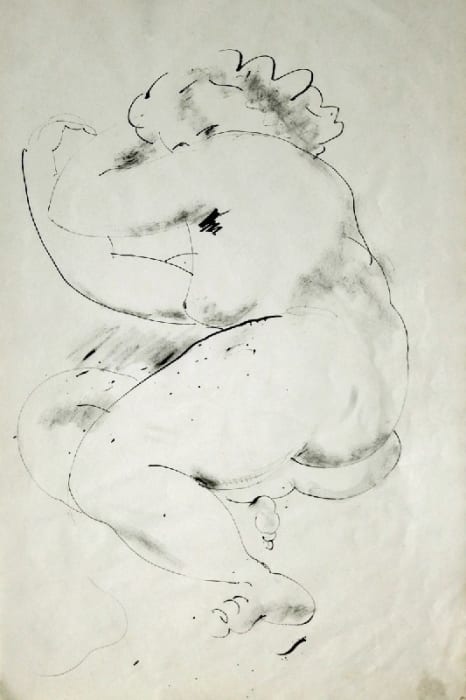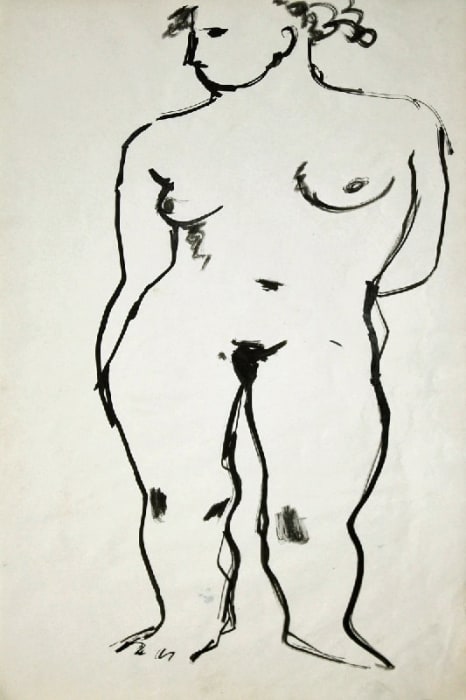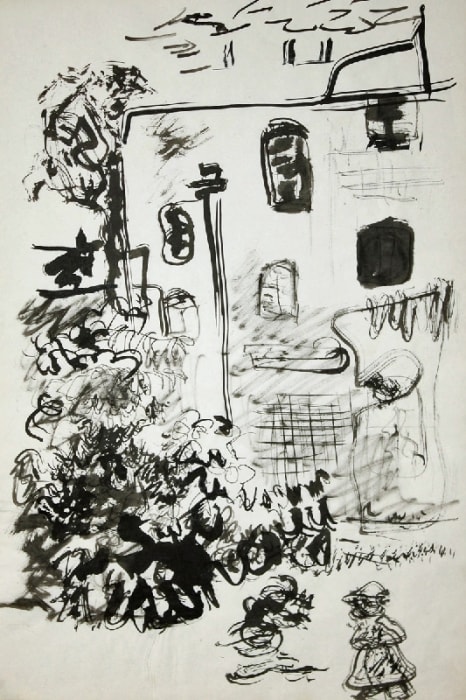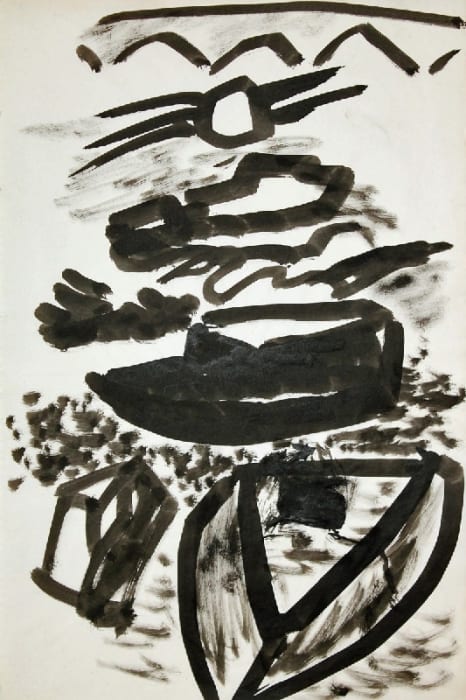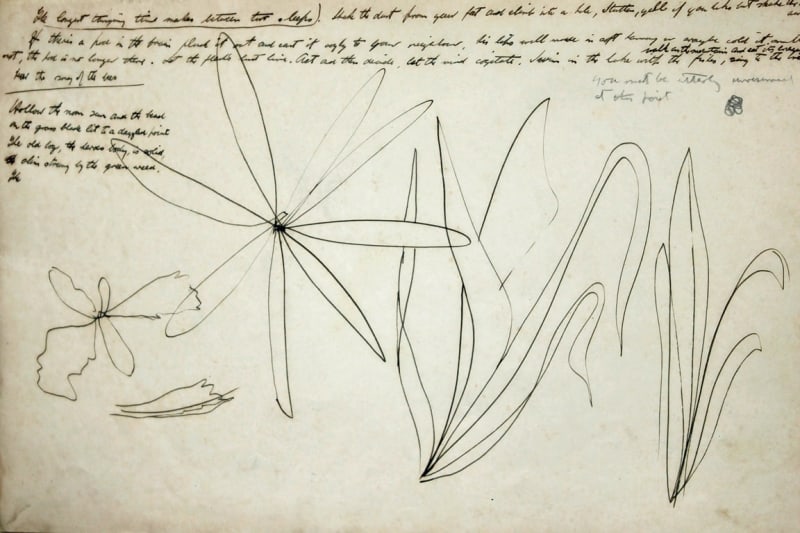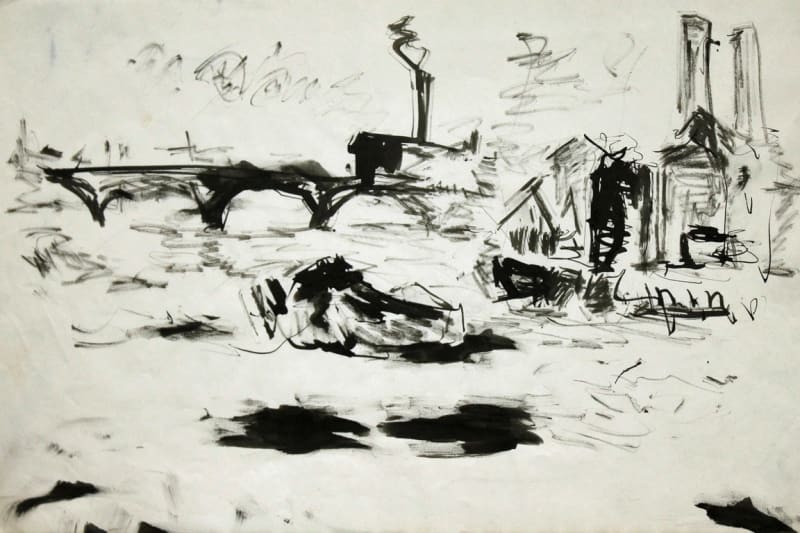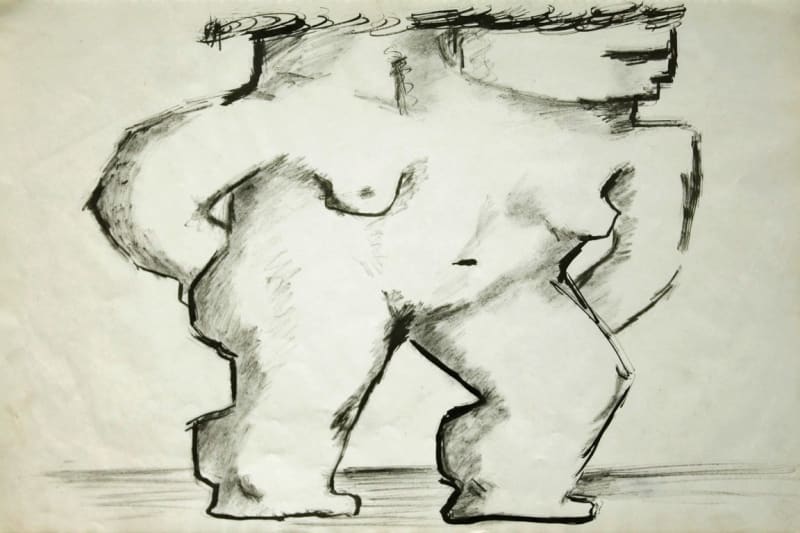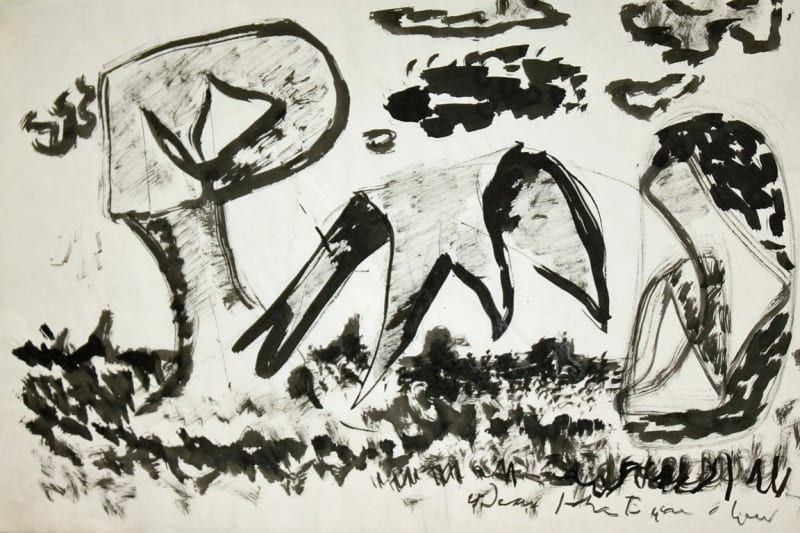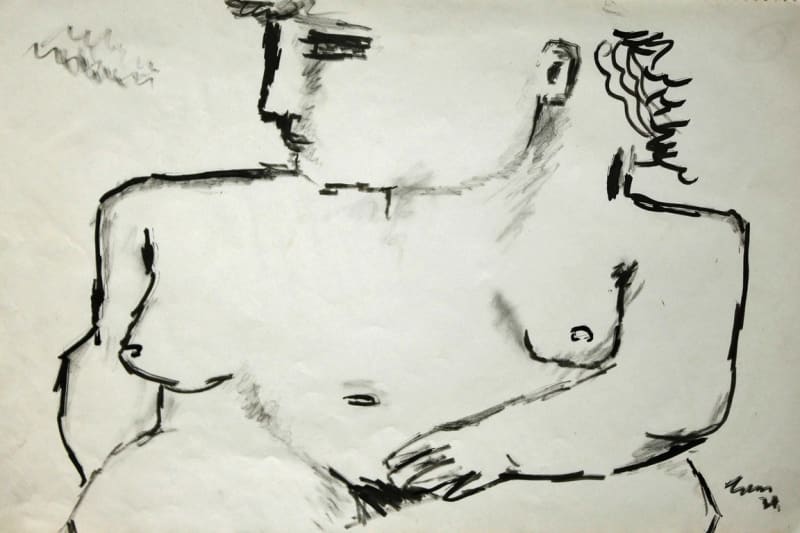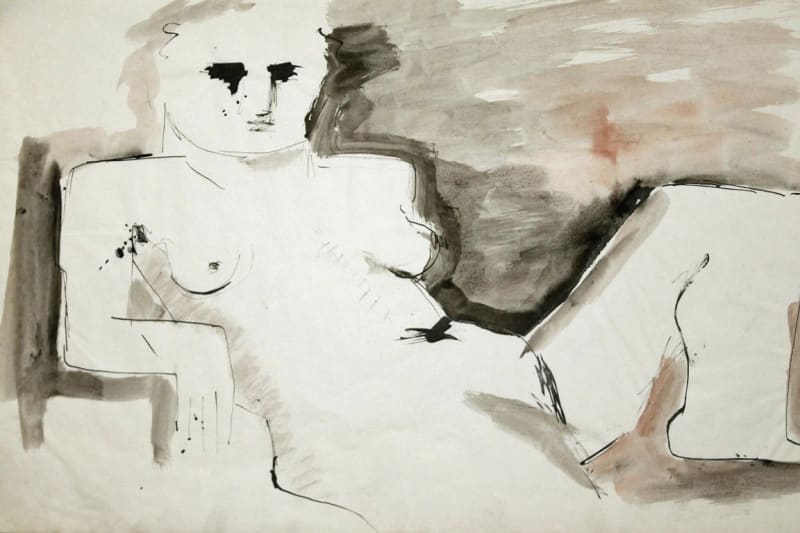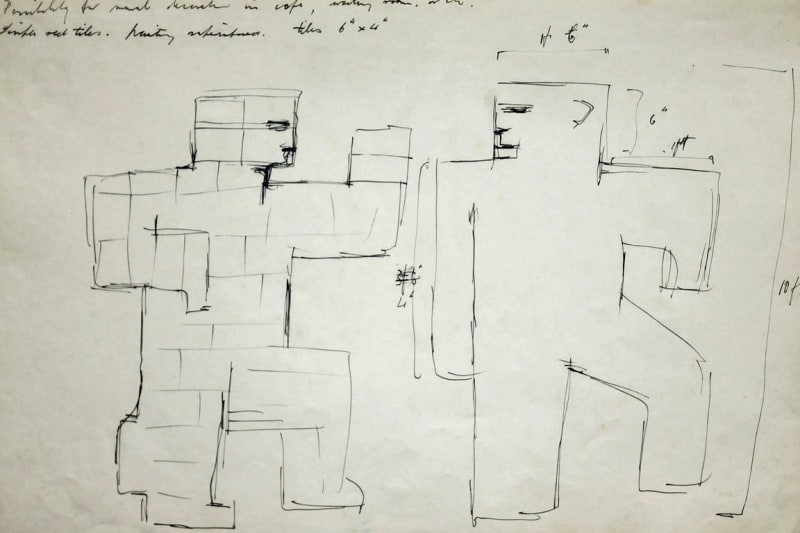William Gear was one of Britain’s leading modernist artists and was directly inspired by the latest trends in the mid twentieth century European avant-garde.
Born in Scotland in 1915, William Gear is widely considered one of the leading British abstract painters of his generation. Gear studied at Edinburgh College of Art, after which he gained a postgraduate scholarship enabling him to study art at Edinburgh University. He won a scholarship that permitted him to travel abroad and visited Italy, Greece and France, where he studied in Paris under Fernand Leger. Leger had been inspired by analytical Cubism, the earlier phase of the Cubist movement that encouraged fracturing the object so as to endow the final piece with a multiple viewpoint perspective. While Gear's work does not go so far as to destabilise the integrity of the subject, Leger's influence is visible, particularly in Gear's studies of the female nude: the heavy black lines both characterise and encircle the human figure, and combine with a sturdiness that emphasises the cylindrical form. A large aspect of his non-figurative work is also characterised by heavy black lines, occasionally injected with colour. Considered controversial during his lifetime and still relatively unknown today, Gear remained dedicated to his artistic principles despite heavy criticism.
